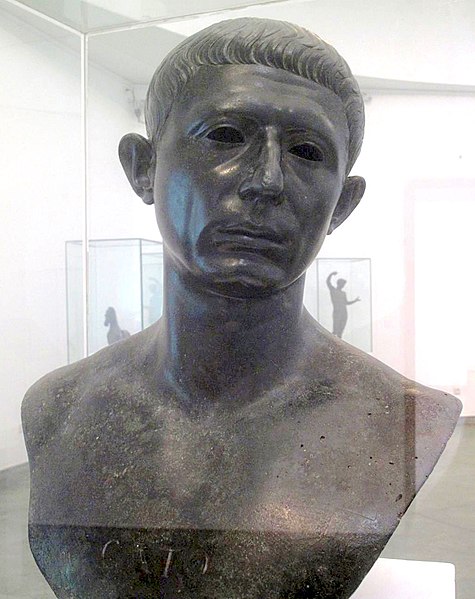The First Triumvirate was an informal political alliance among three prominent politicians in the late Roman Republic: Gnaeus Pompeius Magnus, Marcus Licinius Crassus, and Gaius Julius Caesar. The republican constitution had many veto points. In order to bypass constitutional obstacles and force through the political goals of the three men, they forged in secret an alliance where they promised to use their respective influence to support each other. The "triumvirate" was not a formal magistracy, nor did it achieve a lasting domination over state affairs.
Bust of Cato the Younger, one of the men who successfully stymied the plans of all of the three allies in the years before their alliance.
Image: César (13667960455)
Image: Head of Marcus Licinius Crassus, middle of 1st century BC, from Italy, Moi, Auguste, Empereur de Rome exhibition, Grand Palais, Paris 14649017884
Image: (Venice) Pompey the Great, Museo Archeologico Nazionale
Gnaeus Pompeius Magnus, known in English as Pompey or Pompey the Great, was a general and statesman of the Roman Republic. He played a significant role in the transformation of Rome from republic to empire. Early in his career, he was a partisan and protégé of the Roman general and dictator Sulla; later, he became the political ally, and finally the enemy, of Julius Caesar.
Bust of Pompey, copy of an original from 70–60 BC, Venice National Archaeological Museum
Reputed statue of Pompey, now held at the Villa Arconati, Bollate, brought from Rome in 1627 by Galeazzo Arconati
Bust of Mithridates of Pontus in the Louvre, Paris
Denarius minted in 56 BC by Pompey's supporter Faustus Sulla







